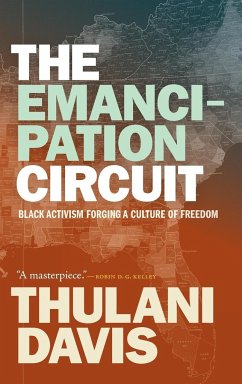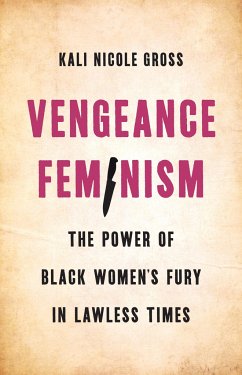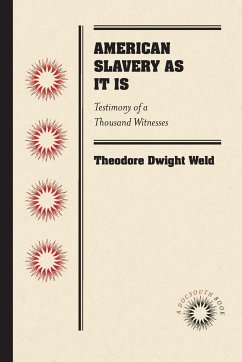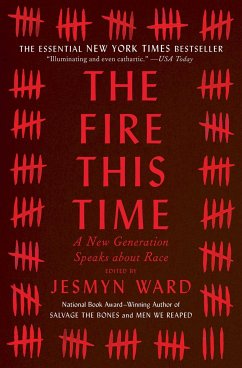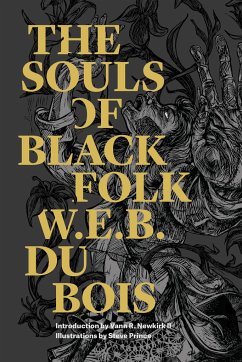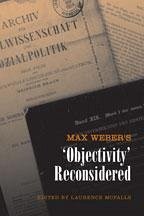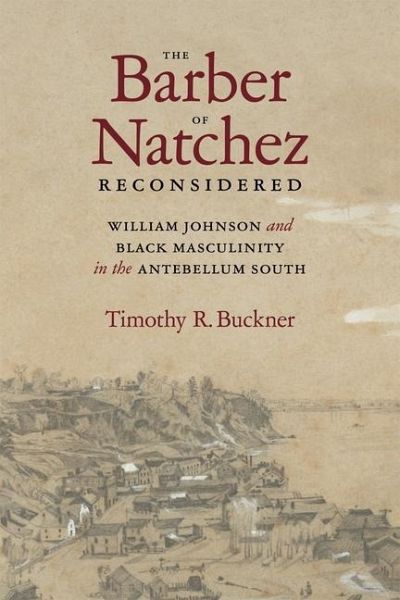
The Barber of Natchez Reconsidered
William Johnson and Black Masculinity in the Antebellum South

PAYBACK Punkte
21 °P sammeln!
"Timothy Buckner's The Barber of Natchez Reconsidered uses William Johnson's life to demonstrate how Black men asserted their masculinity in the nineteenth century. Johnson, a wealthy free Black barber in Natchez, Mississippi, kept a diary from 1835 until his death in 1851. Published a hundred years later by LSU Press, William Johnson's Natchez (1951) is considered by historians to be among the most important sources on free Black life in the antebellum South. The diary inspired numerous studies of Johnson's life, including the influential The Barber of Natchez (LSU Press, 1953), by Edwin A. D...
"Timothy Buckner's The Barber of Natchez Reconsidered uses William Johnson's life to demonstrate how Black men asserted their masculinity in the nineteenth century. Johnson, a wealthy free Black barber in Natchez, Mississippi, kept a diary from 1835 until his death in 1851. Published a hundred years later by LSU Press, William Johnson's Natchez (1951) is considered by historians to be among the most important sources on free Black life in the antebellum South. The diary inspired numerous studies of Johnson's life, including the influential The Barber of Natchez (LSU Press, 1953), by Edwin A. Davis and William R. Hogan. The study and others established Johnson as an anomaly in the old South: a free man of color who held himself separate from other African Americans through slave-owning and internalizing white ideas about racial prejudice. Using recent scholarship on Black masculinity as an essential new lens to reexamine Johnson, Buckner suggests that earlier interpretations failed to understand the complexity of his life. While Johnson's profession as a barber allowed him to achieve acceptance and respectability, it also required him to be subservient to the needs of his all-white clientele. As Buckner shows, that does not mean that Johnson was only concerned with acceptance by whites or that he held himself apart from Natchez's Blacks. Instead, the sources on Johnson's life reveal a man deeply connected to and supportive of the broader African American community while catering to the whims of whites for economic and social survival. In the antebellum South, being a man required a public performance. As Buckner reveals, Johnson participated in that performance to a degree not seen in recent studies of Black masculinity. Outside his working hours, he competed with other men, white and Black, free and enslaved, in various masculine pursuits, especially gambling, hunting, and fishing. Johnson's barbershop was a prime location for witnessing and gossiping about the many fights in Natchez's notoriously violent streets. By making connections based on a shared sense of manliness, Johnson also found ways to engage with whites in civic matters and even challenged them on party politics via non-threatening means. Like many other free Black men, he asserted his manliness in ways beyond just rebelling against slavery. Buckner's long overdue reinterpretation of Johnson's life is a welcome addition to the LSU Press list that will serve as a needed corrective to earlier works about him"--




